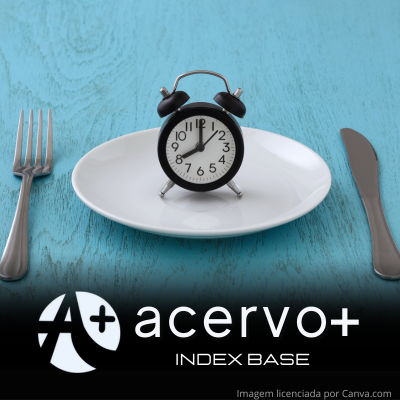O impacto do jejum na estimulação de células NK para o combate ao câncer
##plugins.themes.bootstrap3.article.main##
Resumo
Objetivo: Elucidar o impacto do jejum na estimulação de células NK no combate ao câncer. Revisão bibliográfica: As células Natural Killer (NK) desempenham um papel crucial na imunidade inata, especialmente na eliminação de células tumorais. Nesse sentido, o jejum e dietas que mimetizam o jejum (FMDs) podem intensificar a atividade dessas células, promovendo um microambiente menos favorável ao crescimento de tumores. Ao modular a resposta imunológica, essas práticas reduzem estímulos que favorecem o desenvolvimento do câncer e, ao mesmo tempo, podem minimizar os efeitos adversos comuns de tratamentos oncológicos, como a quimioterapia. Dessa forma, a integração entre estratégias nutricionais e imunológicas aponta o jejum como um potencial coadjuvante em terapias anticâncer, ressaltando a necessidade de adaptações personalizadas para garantir tanto a segurança quanto a maximização dos benefícios do tratamento. Considerações finais: Embora o jejum ofereça benefícios no combate ao câncer, como o fortalecimento da resposta das células NK, é essencial avaliar cuidadosamente os riscos e adequar os protocolos de jejum, especialmente para pacientes oncológicos avançados, garantindo um acompanhamento personalizado para maximizar os efeitos terapêuticos e minimizar possíveis complicações.
##plugins.themes.bootstrap3.article.details##
Copyright © | Todos os direitos reservados.
A revista detém os direitos autorais exclusivos de publicação deste artigo nos termos da lei 9610/98.
Reprodução parcial
É livre o uso de partes do texto, figuras e questionário do artigo, sendo obrigatória a citação dos autores e revista.
Reprodução total
É expressamente proibida, devendo ser autorizada pela revista.
Referências
2. ANTUNES F, et al. Autophagy and intermittent fasting: the connection for cancer therapy? Clinics, 2018; 73: 814.
3. BRANDHORST S, et al. A periodic diet that mimics fasting promotes multi-system regeneration, enhanced cognitive performance, and healthspan. Cell Metabolism, 2015; 22(1): 86-99.
4. CAFFA I, et al. Fasting potentiates the anticancer activity of tyrosine kinase inhibitors by strengthening MAPK signaling inhibition. Oncotarget, 2015; 6(14): 11820-11832.
5. CARDIM ES, et al. DIABETES MELLITUS TIPOS 1 E 2 E ASPECTOS IMUNOLÓGICOS. Revista Ibero-Americana de Humanidades, Ciências e Educação, 2024; 10(10): 927-945.
6. CHENG CW, et al. Prolonged fasting reduces IGF-1/PKA to promote hematopoietic-stem-cell-based regeneration and reverse immunosuppression. Cell Stem Cell, 2014; 14(6): 810-823.
7. CHU J, et al. Natural killer cells: a promising immunotherapy for cancer. Journal of Translational Medicine, 2022; 20(1): 240.
8. CORTELLINO S, et al. Fasting mimicking diet in mice delays cancer growth and reduces immunotherapy-associated cardiovascular and systemic side effects. Nature Communications, 2023; 14(1).
9. COSTA AF de O. Caracterização fenotípica e funcional de células Natural Killer no diagnóstico e avaliação pós-tratamento de leucemia mieloide aguda. [s.l.]: Universidade de São Paulo, Agência USP de Gestão da Informação Acadêmica (AGUIA), 2023.
10. DORFF TB, et al. Safety and feasibility of fasting in combination with platinum-based chemotherapy. BMC cancer, 2016; 16: 1-9.
11. GROOT DS, et al. Fasting mimicking diet as an adjunct to neoadjuvant chemotherapy for breast cancer in the multicentre randomized phase 2 DIRECT trial. Nature Communications, 2020; 11(1): 3083.
12. GROOT DS, et al. The effects of short-term fasting on tolerance to (neo) adjuvant chemotherapy in HER2-negative breast cancer patients: a randomized pilot study. BMC Cancer, 2015; 15: 652.
13. HARVIE MN, et al. Intermittent energy restriction induces changes in breast gene expression and systemic metabolism. Breast Cancer Research, 2016;18: 1-14.
14. KOPPOLD DA, et al. LBA94 Effects of short-term fasting on quality of life as an add-on option during chemotherapy. Annals of Oncology, 2023; 34: 1335.
15. LIU S, et al. NK cell-based cancer immunotherapy: from basic biology to clinical development. Journal of hematology & oncology, 2021; 14 (1): 7.
16. LONGO VD e MATTSON MP. Fasting: Molecular mechanisms and clinical applications. Cell metabolism, 2014; 19(2): 181–192.
17. LUGTENBERG RT, et al. Quality of life and illness perceptions in patients with breast cancer using a fasting mimicking diet as an adjunct to neoadjuvant chemotherapy in the phase 2 DIRECT (BOOG 2013-14) trial. Breast cancer research and treatment, 2021; 185(3): 741–758.
18. MAROFI F, et al. CAR-NK cell in cancer immunotherapy; A promising frontier. Cancer science, 2021; 112 (9): 3427–3436.
19. MATTSON MP, et al. Impact of intermittent fasting on health and disease processes. Ageing research reviews, 2017; 39: 46-58.
20. NETO JAC, et al. Avaliação da Expressão das Células NK no Câncer de Próstata após Prostatectomia Radical. Revista Científica Hospital Santa Izabel, 2023; 7(4): 159-167.
21. PIO R, et al. Fasting and fasting-mimicking conditions in the cancer immunotherapy era. Journal of Physiology and Biochemistry, 2024.
22. PLOTTI F, et al. Diet and chemotherapy: The effects of fasting and ketogenic diet on cancer treatment. Chemotherapy, 2020; 65(3): 77–84.
23. ROSA NR, et al. Estudo das Células Natural Killer (NK) através da técnica de citometria de fluxo para aplicação em terapias contra o Câncer - uma revisão bibliográfica. Brazilian Journal of Health Review, 2024; 7(4): 71070.
24. TERRÉN I, et al. NK cell metabolism and tumor microenvironment. Frontiers in immunology, 2019; 10: 2278.
25. UDUMULA MP, et al. Intermittent Fasting induced ketogenesis inhibits mouse epithelial ovarian tumors by promoting anti-tumor T cell response. bioRxiv.org: the preprint server for biology, 2023.

